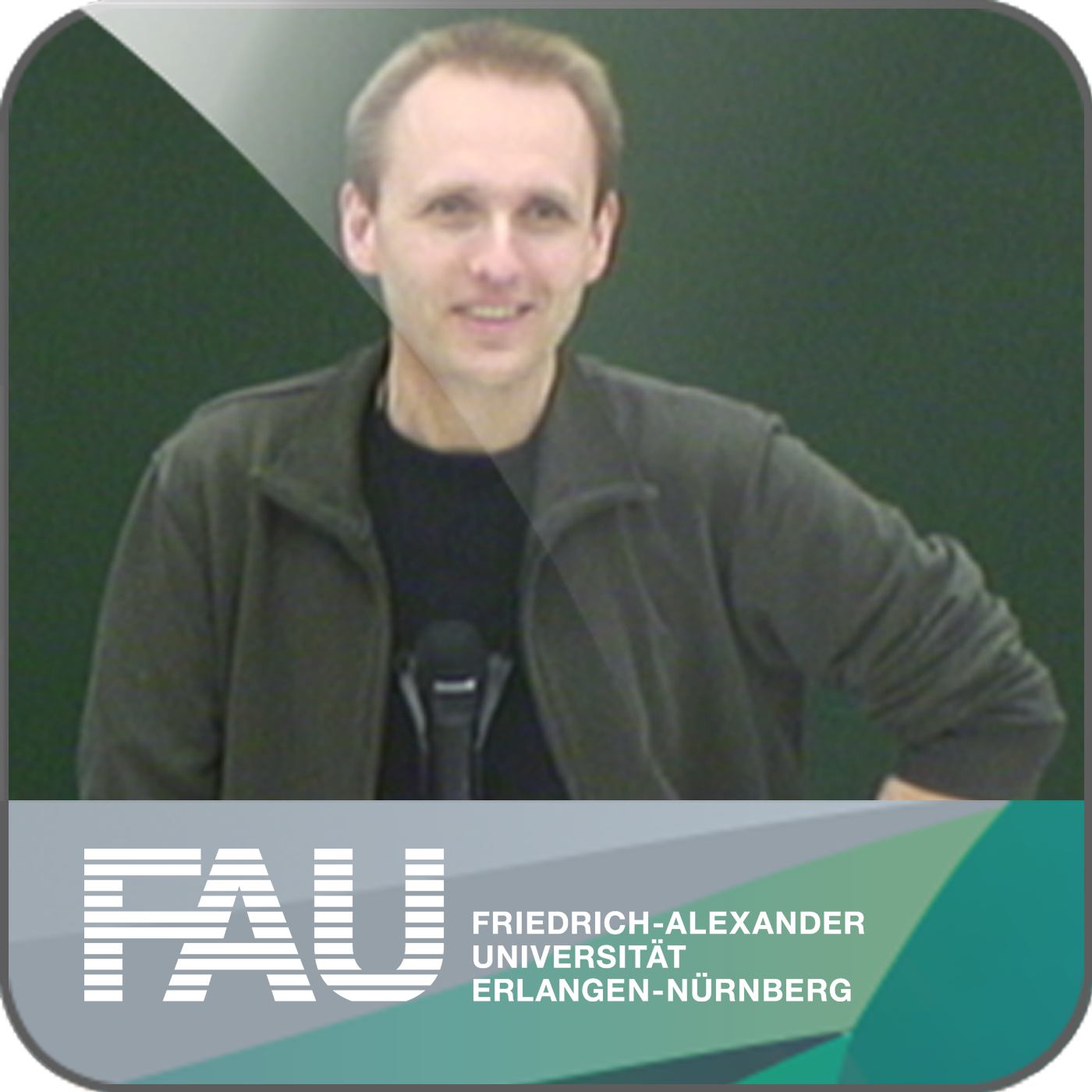The course overviews non-classical logics relevant for computer scientists, in particular
-
Modal logics, extended to formalisms for reasoning about programs - PDL, mu-calculus. Modal systems also form the core of logics of agency and logics for reasoning about knowledge. Moreover they can be seen as a computationally well-behaved fragment of first-order logic over relational structures.
-
Intuitionistic logic, which can be seen as a fragment of certain modal logics (S4) or as the logic of type theory and program extraction.
-
Linear logic, which is established as the core system for resource-aware reasoning
-
The logic of bunched implications and separation logic: more recent formalisms to reason about heap verification and programs involving shared mutable data structures.
-
Fuzzy and multi-valued logics for reasoning with vague information.
Semester
Wintersemester 2015/2016
Lehrenden
Zugang via
Offener Zugang
aktualisiert
2019-04-26 08:15:31
Abonnements
0
-
# 1Offener ZugangNonclassical Logics in Computer ScienceProf. Dr. Lutz Schröder2015-10-13 Wintersemester 2015/20161Nonclassical Logics in Computer ScienceProf. Dr. Lutz Schröder2015-10-13 Wintersemester 2015/2016Offener Zugang
-
# 2Offener ZugangNonclassical Logics in Computer ScienceProf. Dr. Lutz Schröder2015-10-19 Wintersemester 2015/20162Nonclassical Logics in Computer ScienceProf. Dr. Lutz Schröder2015-10-19 Wintersemester 2015/2016Offener Zugang
-
# 3Offener ZugangNonclassical Logics in Computer ScienceProf. Dr. Lutz Schröder2015-10-20 Wintersemester 2015/20163Nonclassical Logics in Computer ScienceProf. Dr. Lutz Schröder2015-10-20 Wintersemester 2015/2016Offener Zugang
-
# 4Offener ZugangNonclassical Logics in Computer ScienceProf. Dr. Lutz Schröder2015-10-26 Wintersemester 2015/20164Nonclassical Logics in Computer ScienceProf. Dr. Lutz Schröder2015-10-26 Wintersemester 2015/2016Offener Zugang
-
# 5Offener ZugangNonclassical Logics in Computer ScienceProf. Dr. Lutz Schröder2015-10-27 Wintersemester 2015/20165Nonclassical Logics in Computer ScienceProf. Dr. Lutz Schröder2015-10-27 Wintersemester 2015/2016Offener Zugang
-
# 6Offener ZugangNonclassical Logics in Computer ScienceProf. Dr. Lutz Schröder2015-11-02 Wintersemester 2015/20166Nonclassical Logics in Computer ScienceProf. Dr. Lutz Schröder2015-11-02 Wintersemester 2015/2016Offener Zugang
-
# 7Offener ZugangNonclassical Logics in Computer ScienceProf. Dr. Lutz Schröder2015-11-03 Wintersemester 2015/20167Nonclassical Logics in Computer ScienceProf. Dr. Lutz Schröder2015-11-03 Wintersemester 2015/2016Offener Zugang
-
# 8Offener ZugangNonclassical Logics in Computer ScienceProf. Dr. Lutz Schröder2015-11-09 Wintersemester 2015/20168Nonclassical Logics in Computer ScienceProf. Dr. Lutz Schröder2015-11-09 Wintersemester 2015/2016Offener Zugang
-
# 9Offener ZugangNonclassical Logics in Computer ScienceProf. Dr. Lutz Schröder2015-11-10 Wintersemester 2015/20169Nonclassical Logics in Computer ScienceProf. Dr. Lutz Schröder2015-11-10 Wintersemester 2015/2016Offener Zugang
-
# 10Offener ZugangNonclassical Logics in Computer ScienceProf. Dr. Lutz Schröder2015-11-16 Wintersemester 2015/201610Nonclassical Logics in Computer ScienceProf. Dr. Lutz Schröder2015-11-16 Wintersemester 2015/2016Offener Zugang
-
# 11Offener ZugangNonclassical Logics in Computer ScienceProf. Dr. Lutz Schröder2015-11-17 Wintersemester 2015/201611Nonclassical Logics in Computer ScienceProf. Dr. Lutz Schröder2015-11-17 Wintersemester 2015/2016Offener Zugang
-
# 12Offener ZugangNonclassical Logics in Computer ScienceProf. Dr. Lutz Schröder2015-11-23 Wintersemester 2015/201612Nonclassical Logics in Computer ScienceProf. Dr. Lutz Schröder2015-11-23 Wintersemester 2015/2016Offener Zugang
-
# 13Offener ZugangNonclassical Logics in Computer ScienceProf. Dr. Lutz Schröder2015-11-24 Wintersemester 2015/201613Nonclassical Logics in Computer ScienceProf. Dr. Lutz Schröder2015-11-24 Wintersemester 2015/2016Offener Zugang
-
# 14Offener ZugangNonclassical Logics in Computer ScienceProf. Dr. Lutz Schröder2015-11-30 Wintersemester 2015/201614Nonclassical Logics in Computer ScienceProf. Dr. Lutz Schröder2015-11-30 Wintersemester 2015/2016Offener Zugang
-
# 15Offener ZugangNonclassical Logics in Computer ScienceProf. Dr. Lutz Schröder2015-12-01 Wintersemester 2015/201615Nonclassical Logics in Computer ScienceProf. Dr. Lutz Schröder2015-12-01 Wintersemester 2015/2016Offener Zugang
-
# 16Offener ZugangNonclassical Logics in Computer ScienceProf. Dr. Lutz Schröder2015-12-07 Wintersemester 2015/201616Nonclassical Logics in Computer ScienceProf. Dr. Lutz Schröder2015-12-07 Wintersemester 2015/2016Offener Zugang
-
# 17Offener ZugangNonclassical Logics in Computer ScienceProf. Dr. Lutz Schröder2015-12-14 Wintersemester 2015/201617Nonclassical Logics in Computer ScienceProf. Dr. Lutz Schröder2015-12-14 Wintersemester 2015/2016Offener Zugang
-
# 18Offener ZugangNonclassical Logics in Computer ScienceProf. Dr. Lutz Schröder2015-12-15 Wintersemester 2015/201618Nonclassical Logics in Computer ScienceProf. Dr. Lutz Schröder2015-12-15 Wintersemester 2015/2016Offener Zugang
-
# 19Offener ZugangNonclassical Logics in Computer ScienceProf. Dr. Lutz Schröder2015-12-21 Wintersemester 2015/201619Nonclassical Logics in Computer ScienceProf. Dr. Lutz Schröder2015-12-21 Wintersemester 2015/2016Offener Zugang
-
# 20Offener ZugangNonclassical Logics in Computer ScienceProf. Dr. Lutz Schröder2015-12-22 Wintersemester 2015/201620Nonclassical Logics in Computer ScienceProf. Dr. Lutz Schröder2015-12-22 Wintersemester 2015/2016Offener Zugang
-
# 21Offener ZugangNonclassical Logics in Computer ScienceProf. Dr. Lutz Schröder2016-01-11 Wintersemester 2015/201621Nonclassical Logics in Computer ScienceProf. Dr. Lutz Schröder2016-01-11 Wintersemester 2015/2016Offener Zugang
-
# 22Offener ZugangNonclassical Logics in Computer ScienceProf. Dr. Lutz Schröder2016-01-18 Wintersemester 2015/201622Nonclassical Logics in Computer ScienceProf. Dr. Lutz Schröder2016-01-18 Wintersemester 2015/2016Offener Zugang
-
# 23Offener ZugangNonclassical Logics in Computer ScienceProf. Dr. Lutz Schröder2016-01-19 Wintersemester 2015/201623Nonclassical Logics in Computer ScienceProf. Dr. Lutz Schröder2016-01-19 Wintersemester 2015/2016Offener Zugang
-
# 24Offener ZugangNonclassical Logics in Computer ScienceProf. Dr. Lutz Schröder2016-01-25 Wintersemester 2015/201624Nonclassical Logics in Computer ScienceProf. Dr. Lutz Schröder2016-01-25 Wintersemester 2015/2016Offener Zugang
-
# 25Offener ZugangNonclassical Logics in Computer ScienceProf. Dr. Lutz Schröder2016-01-26 Wintersemester 2015/201625Nonclassical Logics in Computer ScienceProf. Dr. Lutz Schröder2016-01-26 Wintersemester 2015/2016Offener Zugang
-
# 26Offener ZugangNonclassical Logics in Computer ScienceProf. Dr. Lutz Schröder2016-02-02 Wintersemester 2015/201626Nonclassical Logics in Computer ScienceProf. Dr. Lutz Schröder2016-02-02 Wintersemester 2015/2016Offener Zugang


























